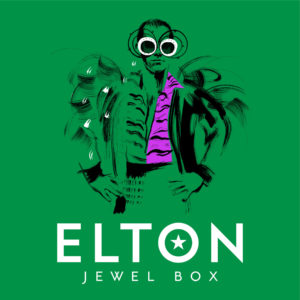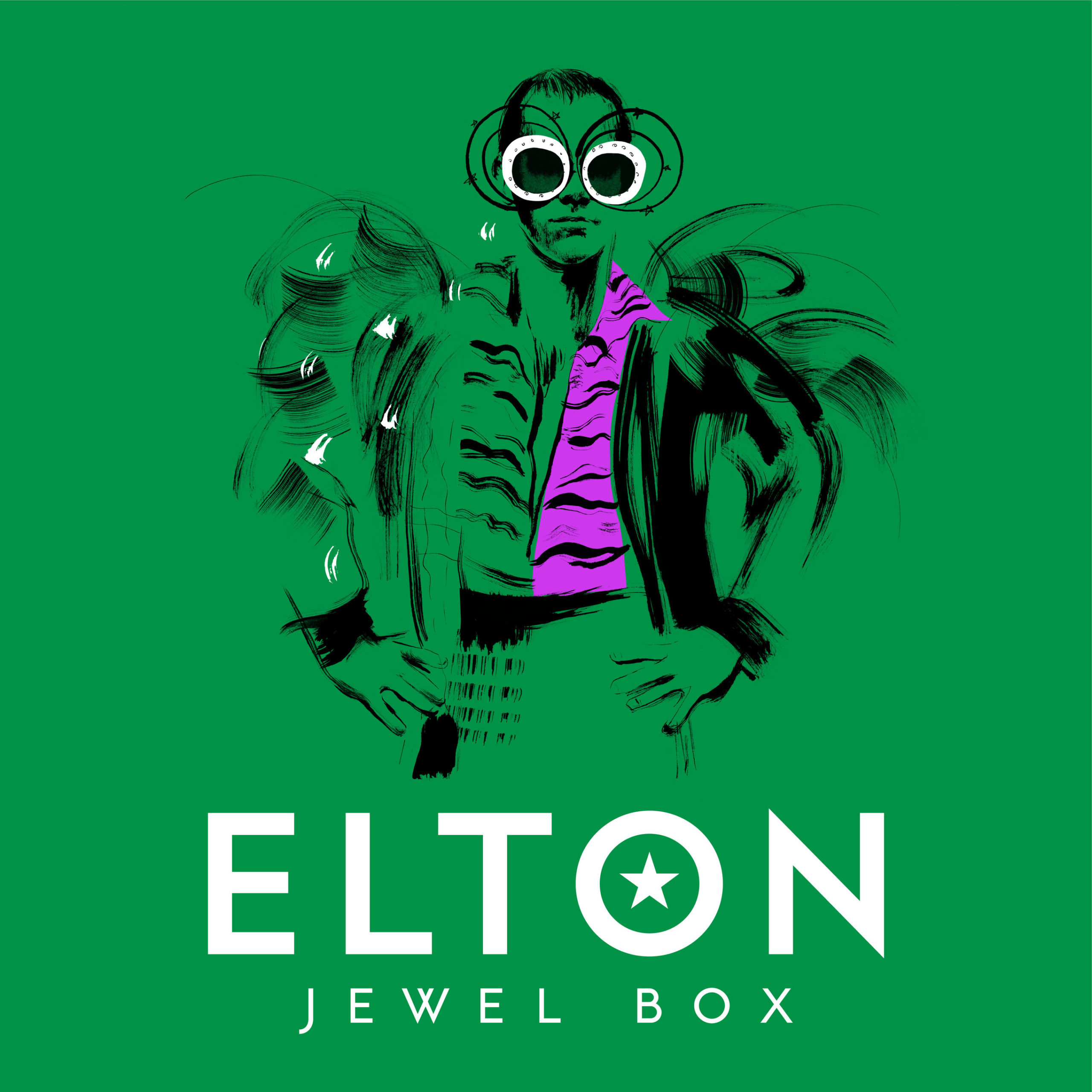Elton John
Jewel Box
UMe
7/10
Let’s be corny and start off by saying that pretty much each once-lost treasure now found in Elton John’s Jewel Box collection is a gem. Even if a track’s translucence is dulled or its erstwhile setting tarnished by trend or time (e.g. psychedelic ’60s-era material from John’s Regimental Sgt. Zippo project), John’s knack for contagious soulful melodicism and grand theatrical gesture sparkles. What comprises Jewel Box, though, is what makes its luster so curious. Rather than be just a collection of never-heard recordings, or just rarities and alternate versions, or just B-sides, or just vocal and piano demos, the multi-disc package is all-of-the-above and more in that the box additionally cobbles together songs on John albums that the Piano Man happens to think rival his hits.
That these deep cuts were lost among his successes in the first place is our fault, with Jewel Box offering a second chance to re-examine the greatness of, say, the lovely “Blues for Baby and Me” (discussed in his self-penned liner notes as a “strange half-sister” of “Tiny Dancer”), the grooving “Boogie Pilgrim,” several cuts recorded with Leon Russell and Little Richard, the gospel-y “Where to Now St. Peter?,” the dramatic “Have Mercy on the Criminal,” and the menacingly pensive “Ticking.” Even the metronomic instrumental, “Song for Guy” makes an appearance, famous now for a particularly frantic and lonely scene during The Crown’s newly released fourth season.
It would be no surprise that skeletal early material such as the Carnaby Street cool “Come Back Baby” and “Mr. Frantic,” with his band Bluesology, the enormously hep “Where It’s At” piano/percussion demo, or the opulent pop of “Velvet Fountain”—all from John’s 1965 to 1968 period—would be the sincerely smart stuff of a great box set, taking up three discs of the collection. But so, too, do the full-band, thoroughly arranged, and orchestrated psych-pop “Regimental Sgt. Zippo,” the Four Seasons-esque “Two of a Kind,” and rough rhyme & blues of “Dick Barton Theme (Devil’s Gallop)” (as the Bread and Beer Band) warrant love and devotion. Throughout all years, and all proceedings, Elton’s warm, catty tenor and its clear and soulful lows tunnel through each track—from Bacharachian sophistication and his own brand of buoyant pop, to sullen ballads, to frenzied rockers.
Maybe nearly forty B-sides from between 1976 and 2005—many of which sound like dated B-sides, and nothing more—might be excessive. That’s the point of Jewel Box: that nothing succeeds like excess. And no one’s excesses are as glorious and ornate as Elton John’s.







